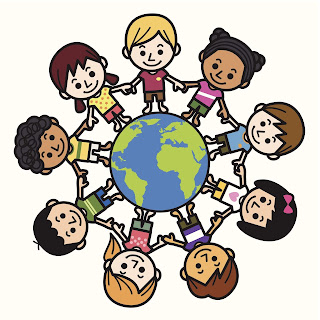Youth Work Is... Purposeful Play
These articles provided a new insight to me on how children play. Play is such an important aspect in a child's growth physically and emotionally. I never knew that play had so many parts to it until I read these readings. According to Henry Jenkins play is composed of the six P's which are permission, process, passion, productivity, participation, and pleasure. I kept re-reading this article because I was trying to find what the main message she was trying to portray. I realized that I needed to stop worrying about piecing together her words and instead understanding that kids learn the best through any kind of play. I really resonated with her reasoning behind permission. I learned about the "magic circle" which is a mental bracket we put around our activities which changes their affects, meaning, and most of all their consequences.
"Within that magic circle, we lower the consequences of risks; we agree to engage with each other with good humor; we try hard but do not take the outcome as seriously as we would if we performing the same activities outside of a play context. I love the example of the little girl who is sweeping the floor -- we would understand her activity differently if she were doing chores or playing house, even though the actions would be the same."
I loved learning about what educators and game theorists call the "magic circle." This quote I thought was very unique because she uses real life examples to explain her meaning which I can relate to. She uses the example of a girl sweeping the floor and how we would have understood her activity differently if she was playing house even though the actions would be exactly the same. At my job I see this kind of example all the time. Many of my children love cleaning and if I wasn't the teacher in the room everyday observing this I wouldn't understand the kind of activity they were trying to portray. My children sweep and clean the tables all the time and I love that in this so called "magic circle" they can express who they want to be or do in that given moment.

Another principle of play that Jenkins discusses that I can relate to is passion. What goes hand and hand with this is passion based learning which are topics that the students care deeply about and use these interests to motivate and sustain other kinds of learning. These students will be eager to learn deeper about something they are passionate or interested in to stay engaged.
"The Gates Foundation has found that an increasing number of young people are dropping out of school not because they are incapable of performing what’s expected of them but because they are bored."
To me, this quote is very important because it shows that there are many children in school who are eager to learn but are dropping out because the material that they are learning is not what they are interested in. As a current educator I see this all the time. I have a student in my class who was academically ready to transition to the preschool room, however he was not old enough yet. In order for him to still stay engaged, I used what he was interested in which was doing puzzles and incorporated this the best I could in our everyday class lessons.
The last core principle of play that I thought was interesting and important was productivity. Children learn a lot through productivity. This step allows children to be creative and use their imagination. Having children do this is so valuable because they are expressing them selves through playing. I thought it was fascinating that productivity encourages children to find everyday materials in their household to develop new ways of interacting through play. I believe that dramatic play is a major aspect in productivity. When my children engage in dramatic play they are performing new roles and trying out new situations through play. Overall, I enjoyed diving deep into this article and learning about the core principles of play. Now that I have more knowledge of this topic I can implement this learning style into my current and future classroom.




Thanks for your detailed reflections and analysis of Henry Jenkins article!
ReplyDeleteI really like the pictures you chose. I enjoyed reading your outlook on play with young people.
ReplyDelete